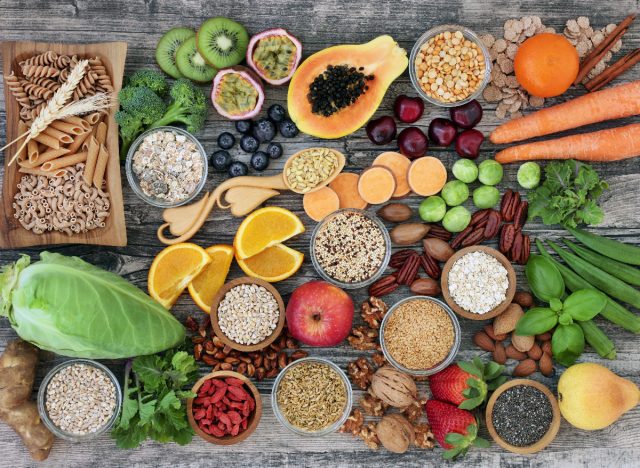Anyone who deals with gut issues knows that they can be annoying, uncomfortable, and downright painful at times. That might be something that you know well due to the fact that 12% of those living in the United States have irritable bowel syndrome (IBS), a disorder that affects the gastrointestinal tract, according to the National Institutes of Health.
Another common disorder affecting the digestive tract is inflammatory bowel disease (IBD), which about 60 to 70 million residents of the United States face. The two types of IBD are Crohn's disease and ulcerative colitis, both of which involve chronic inflammation issues.
Fortunately, there are certain things that you can do to help improve the state of your gut if you have IBD, including avoiding foods that might make the situation worse. That's why you might be interested to find out that a specific kind of fiber does just that, according to a new study.
What the study found

The study, which was published in Gastroenterology and involved researchers from the University of Manitoba and the University of Alberta, analyzed the results of tests, including colonic biopsies, that had been done on participants who have IBD. Their aim was to determine how various kinds of fiber might affect the body of someone with IBD.
The results showed that participants with IBD were not able to properly digest unfermented dietary β-fructan fibers. On top of that, the unfermented dietary β-fructan fibers intensified the participants' IBD symptoms by causing inflammation.
"The findings of this study may help to move nutritional guidance to patients on a more personalized, individualized basis—what the authors refer to as 'precision nutrition,'" says Susan Bowerman, M.S., R.D., CSSD, CSOWM, FAND, senior director of Worldwide Nutrition Education and Training at Herbalife Nutrition. "We are moving away from a 'one-size-fits-all' approach to managing those with IBS or IBD, and this information provides more insight into the effects that specific types of dietary fibers may have in certain individuals with these symptoms."
When it comes to unfermented dietary β-fructan fibers, Bowerman explains that "since Beta fructans are found in many healthy foods, there is no reason that everyone should avoid them." However, "for those who have gut issues, it may make sense to avoid those foods with Beta fructans and determine if avoidance improves symptoms."
Which foods contain this type of fiber?

If you have gut issues and feel like you may need to cut potentially problematic fiber out of your diet, Bowerman says that "Avoiding Beta fructans means avoiding specific foods that contain them: grapefruit, bananas, dates, prunes, foods in the onion family, artichokes, Brussels sprouts, asparagus, and certain grains, beans and nuts."
If that sounds like a lot, it is. That's why Bowerman also points out "That because Beta fructans are widespread in foods, consultation with a registered dietitian who specializes in digestive disorders would be valuable in order to ensure that a balanced diet will still be consumed after you remove these fiber-heavy foods."
No comments:
Post a Comment